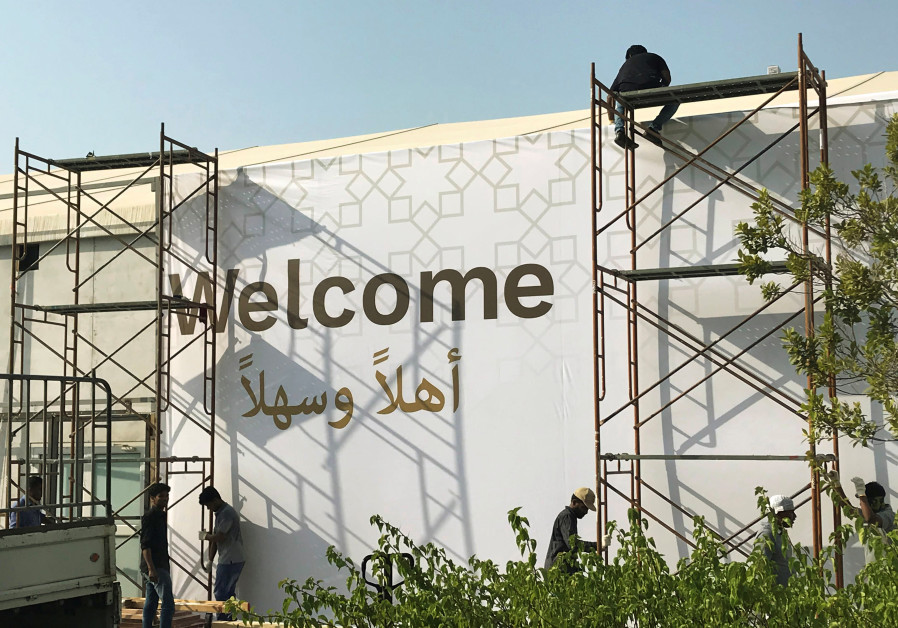Bahrain or bust – reporter’s notebook

Workers place a banner at the pavilion where the U.S. hosted event “Peace to Prosperity” takes place outside Four Seasons Hotel in Manama, Bahrain.. (photo credit: MATT SPETALNICK/REUTERS)
Join Jerusalem Post Premium Plus now for just $5 and upgrade your experience with an ads-free website and exclusive content. Click here>>






Comments are closed.